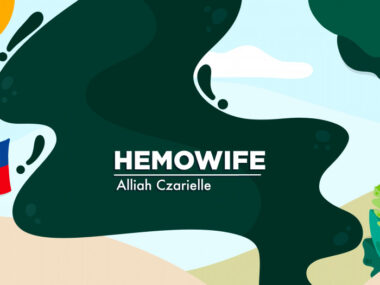Caregiving is a lifelong learning process
No matter how much I've experienced, I'm open to discoveries and progress
Written by |

Lately, I’ve been thinking about what it means to be an expert. In my work as a virtual marketer and strategist, the word gets used all the time. People in my profession are expected to act like we know exactly what we’re doing. We’re told to speak with confidence, use tools skillfully, and project authority.
But I’ve never felt fully comfortable calling myself an expert. Not in my job, and especially not in my role as a carer to my husband, Jared, who lives with hemophilia B and a seizure disorder.
Yes, I’ve learned a lot over the years. In my career, I’ve picked up tools, strategies, and insights that help me solve problems for clients. At home, I’ve supported Jared through bleeds, adjusted plans around his treatment schedule, and done my best to help him feel safe and cared for. I’ve been there in moments of pain, uncertainty, and exhaustion.
And still, I don’t believe I’ve mastered anything. There’s always more to learn. Always room to improve. Sometimes I feel like I’m learning everything all over again, just in a slightly new way.
That mindset has become a foundation in how we raise our daughter. Jared and I often remind her: “The moment you stop learning is the moment you stop growing.” It’s a simple phrase, but one that has guided us through so much. We hope she carries it with her for life — and we try to live it, too.
Caregiving is dynamic
Caregiving isn’t about reaching expert status and staying there. It’s a lifelong process of learning, adapting, and growing. Especially in the world of hemophilia, things change all the time. Just when you think you’ve got a system that works, something unexpected happens. A bleed might occur out of nowhere. A familiar infusion routine might suddenly become tricky. Or your own health, energy, or emotions might feel off — and suddenly everything feels more difficult to manage.
Even the tiniest snags in a simple infusion routine can throw us off. Veins are unpredictable — easy to find one day, outwardly invisible the next. Syringes might be faulty, especially when they’ve aged enough for the rubber to deteriorate. Butterfly needles might come all tangled up in their packaging, making it difficult to see the backflow of blood.
That’s why I now see caregiving as a living, breathing practice. It isn’t something you perfect. It’s something you return to again and again, adjusting your approach with each new experience. Some days feel smooth; others are full of challenges. But each one is a chance to grow.
So, no — I don’t call myself an expert carer. And I think that’s a strength. That mindset keeps me open to learning. It reminds me that there are always new ideas, new methods, and new ways to care for the people I love.
If hemophilia has taught me anything, it’s this: Presence matters more than perfection. You don’t need to have all the answers. You just need to keep showing up, keep growing, and keep loving — one day after another.
Note: Hemophilia News Today is strictly a news and information website about the disease. It does not provide medical advice, diagnosis, or treatment. This content is not intended to be a substitute for professional medical advice, diagnosis, or treatment. Always seek the advice of your physician or another qualified health provider with any questions you may have regarding a medical condition. Never disregard professional medical advice or delay in seeking it because of something you have read on this website. The opinions expressed in this column are not those of Hemophilia News Today or its parent company, Bionews, and are intended to spark discussion about issues pertaining to hemophilia.




Leave a comment
Fill in the required fields to post. Your email address will not be published.